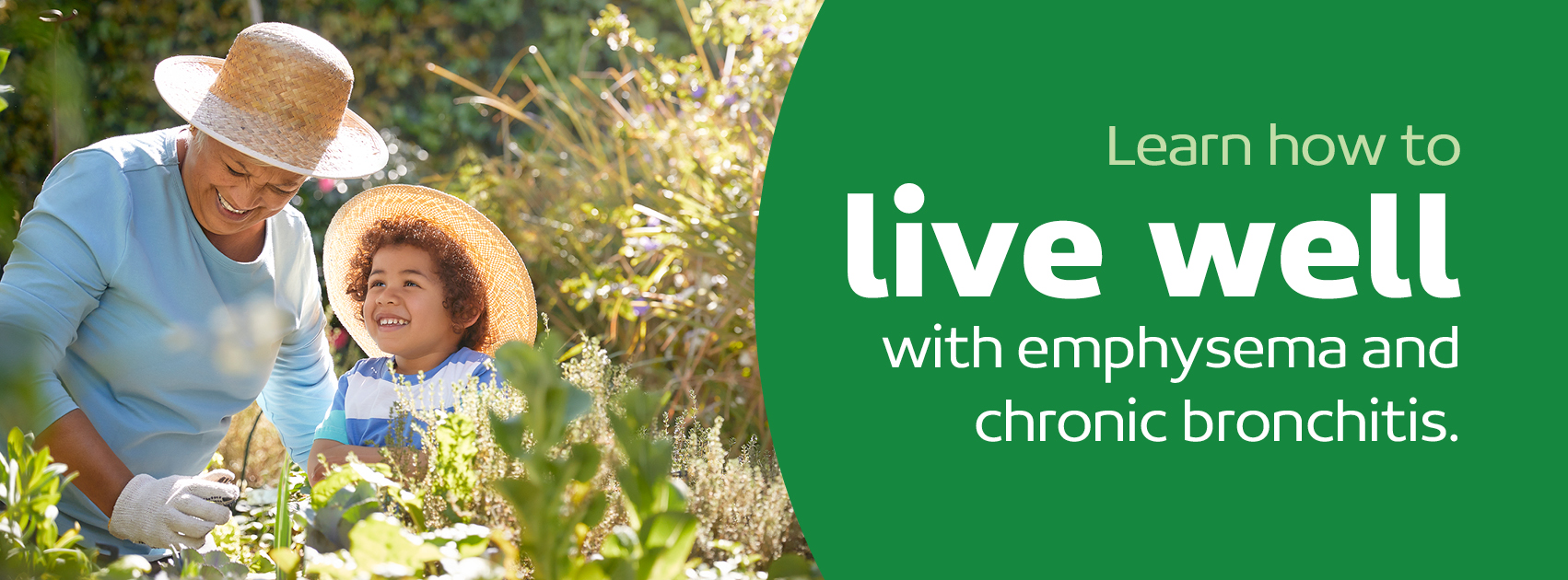Living with COPD? Don’t miss this vital step to better manage your symptoms

If you’re familiar with Chronic Obstructive Pulmonary Disease (COPD), you will know just how profoundly fatigue and shortness of breath can impact your daily life, independence, and overall wellbeing.
Those just learning about the condition are often surprised to discover how common it is. In fact, COPD is currently the leading cause of preventable hospitalisations in Australia — yet its symptoms are often mistakenly attributed to, and dismissed as, ‘normal ageing’.
While there is currently no cure for COPD, there are ways to manage symptoms, stay out of hospital, and maintain a good quality of life.
Starts at 60 has partnered with Lung Foundation Australia to share the My COPD Checklist, a free online resource that can better equip you to manage the condition, breathe more easily, and stay as independent as possible. Click here to get started.
What is COPD?
Chronic Obstructive Pulmonary Disease (COPD) encompasses a range of conditions that can affect your breathing, including:
- Emphysema
- Chronic bronchitis
Common symptoms under the COPD umbrella — such as shortness of breath, a persistent cough, more frequent chest infections and tiredness — are often more prevalent in older adults. Recognising these symptoms is the first step towards diagnosis and management of COPD, which is diagnosed using a breathing test called spirometry.
According to Lung Foundation Australia, approximately 1 in 13 Australians aged 40 years and over have some form of COPD.
We recently spoke with Mark Brooke, CEO of Lung Foundation Australia, on the eye-opening findings of their recent nationwide survey of the experience of people living with lung disease.
“People over 60 will say things like ‘I’m beginning to be more breathless’, ‘I can’t play with my grandkids as often as I would like’ or ‘I get fatigued really easily’,” he said. “They’ve put that down to just ageing. In fact, a lot of that has to do with a particular airways disease. So it’s really important that people understand the symptoms of airways disease and that they accumulate over the life course.”
“This notion that it’s normal to be tired or breathless or fatigued is one that we need to demystify and debunk.”
Watch the full video below of our recent interview with Mark Brooke on effectively managing and avoiding the worst symptoms of COPD.
Managing emotional and physical wellbeing with COPD
Living with COPD can certainly be challenging, and it’s normal to experience emotional shifts such as depression or anxiety due to the impact of the disease on your daily activities.
For those who have COPD and don’t know where to begin, the My COPD Checklist is your first port of call; one that can point you to the simple steps you can take to improve your day-to-day life, such as doing a pulmonary rehabilitation program, connecting with support groups and speaking with a Respiratory Care Nurse.
What is pulmonary rehabilitation?
Pulmonary rehabilitation programs cater to individuals at any stage of COPD, particularly those hindered by breathlessness.
These programs are led by specially trained health professionals who teach you the skills to exercise safely, manage shortness of breath and maintain your well-being – keeping you out of the hospital.
Eric, a Bundaberg resident who lives with COPD, says the most beneficial part of pulmonary rehabilitation was “gaining the knowledge to understand what was happening to me and being able to control my breathing”.
“This in turn assisted in controlling periods of depression and anxiety as well as accepting I have a serious health condition.”
Regular physical activity is a cornerstone of pulmonary rehabilitation. It disrupts the cycle of inactivity and seamlessly weaves exercise into the fabric of daily life. Enhanced independence is often the hallmark of a well-managed routine, especially for those battling chronic conditions. This helps make everyday tasks like showering, hanging laundry, walking, and gardening more manageable.
What support is available?
Support groups serve as a valuable addition to formal support services.
By allowing those with similar experiences to share their stories and encourage one another, such groups can help ward off the sense of isolation that can come from life with COPD.
Lung Foundation Australia can help connect you with the best support option available to you, whether it’s a face-to-face group, virtual group or one-on-one telephone conversation. Click here to learn more.
This includes access to a readily available Respiratory Care Nurse who offers free telephone-based support for individuals living with COPD. These expert nurses deliver evidence-based advice covering every aspect of diagnosing, treating, and managing your condition.
Take the vital first step today
Take control of COPD with the My COPD Checklist. In just a few minutes, you’ll receive a personalised report with clear guidance to better manage your condition or support a loved one — all for FREE.
It’s a quick, easy way to find any gaps in your current COPD care. Gain greater control over COPD and start improving quality of life today. Click here to get started.
IMPORTANT LEGAL INFO This article is of a general nature and FYI only, because it doesn’t take into account your personal health requirements or existing medical conditions. That means it’s not personalised health advice and shouldn’t be relied upon as if it is. Before making a health-related decision, you should work out if the info is appropriate for your situation and get professional medical advice.

If you're familiar with COPD, you will know how fatigue and shortness of breath can impact your daily life, independence, and wellbeing. Take control of COPD by taking the My COPD Checklist to receive a personalised report to help you live better with COPD.








 Proudly Australian owned and operated
Proudly Australian owned and operated